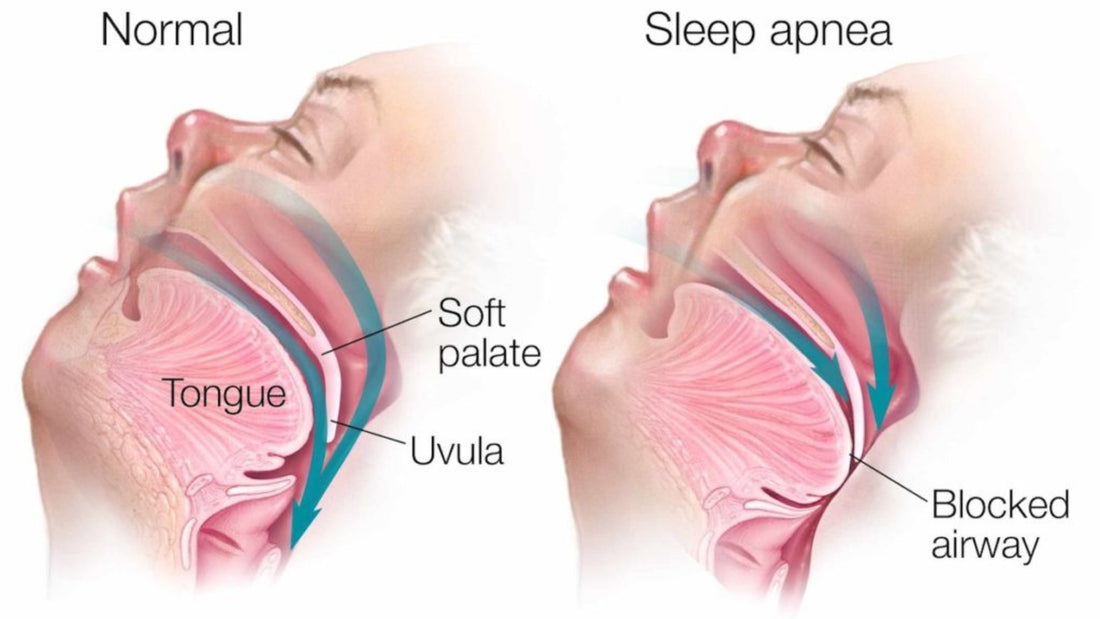Understanding Sleep Apnea: Causes, Symptoms, and Treatment
Sleep is essential for overall health and well-being, yet for many, it remains elusive due to various sleep disorders. One such disorder that affects millions of people worldwide is sleep apnea. In this blog post, we'll delve into what sleep apnea is, its causes, symptoms, and available treatment options.
What is Sleep Apnea?
Sleep apnea is a common sleep disorder characterized by pauses in breathing or shallow breaths during sleep. These pauses, known as apneas, can last from a few seconds to minutes and may occur multiple times throughout the night. As a result, individuals with sleep apnea often experience disrupted sleep patterns, leading to daytime sleepiness and fatigue.
Types of Sleep Apnea
There are three main types of sleep apnea:
Obstructive Sleep Apnea (OSA): This is the most common form of sleep apnea and occurs when the muscles at the back of the throat relax excessively, causing the airway to become blocked.
Central Sleep Apnea (CSA): In CSA, the brain fails to send the appropriate signals to the muscles responsible for controlling breathing.
Complex Sleep Apnea Syndrome (CompSA): Also known as treatment-emergent central sleep apnea, this type involves a combination of both obstructive and central sleep apnea.
Causes of Sleep Apnea
While the exact cause of sleep apnea may vary depending on the type, several common factors can contribute to its development:
Obesity: Excess weight, particularly around the neck, can increase the risk of obstructive sleep apnea by placing pressure on the airway.
Age: Sleep apnea becomes more common as individuals age, with middle-aged and older adults at a higher risk.
Gender: Men are more likely to develop sleep apnea than women, although the risk for women increases after menopause.
Family History: A family history of sleep apnea may predispose individuals to the disorder.
Anatomical Factors: Structural abnormalities in the nose, throat, or jaw can contribute to airway obstruction during sleep.
Alcohol and Sedatives: Consuming alcohol or sedatives before bedtime can relax the throat muscles, making it more likely for the airway to collapse.
Symptoms of Sleep Apnea
The symptoms of sleep apnea can vary in severity and may include:
Loud Snoring: Snoring loudly, particularly in individuals with obstructive sleep apnea, is a common symptom.
Pauses in Breathing: Witnessed pauses in breathing during sleep, often reported by bed partners.
Daytime Sleepiness: Excessive daytime sleepiness and fatigue, even after a full night's rest.
Morning Headaches: Waking up with headaches due to decreased oxygen levels during sleep.
Gasping or Choking Sensation: Waking up with a choking or gasping sensation during the night.
Diagnosis and Treatment
Diagnosing sleep apnea usually involves undergoing a sleep study, also known as polysomnography. During this test, various parameters such as breathing patterns, oxygen levels, and brain activity are monitored to assess sleep quality and detect any abnormalities.
Treatment options for sleep apnea depend on the type and severity of the disorder. They may include:
Continuous Positive Airway Pressure (CPAP) Therapy: CPAP therapy involves wearing a mask connected to a machine that delivers a continuous stream of air to keep the airway open during sleep.
Oral Appliances: Oral appliances, such as mouthguards or mandibular advancement devices, can help keep the airway open by repositioning the jaw during sleep.
Surgery: Surgical procedures may be recommended to address anatomical abnormalities contributing to airway obstruction.
Lifestyle Changes: Making lifestyle modifications such as losing weight, avoiding alcohol and sedatives before bedtime, and sleeping on your side can help reduce the severity of sleep apnea symptoms.
Sleep apnea is a common sleep disorder that can have significant implications for overall health and quality of life if left untreated. By understanding its causes, symptoms, and available treatment options, individuals can take proactive steps to manage their condition and improve their sleep quality.
Sleep apnea is a complex sleep disorder that requires comprehensive evaluation and personalized treatment. If you suspect you or a loved one may have sleep apnea, it's essential to consult with a healthcare professional for proper diagnosis and management.

